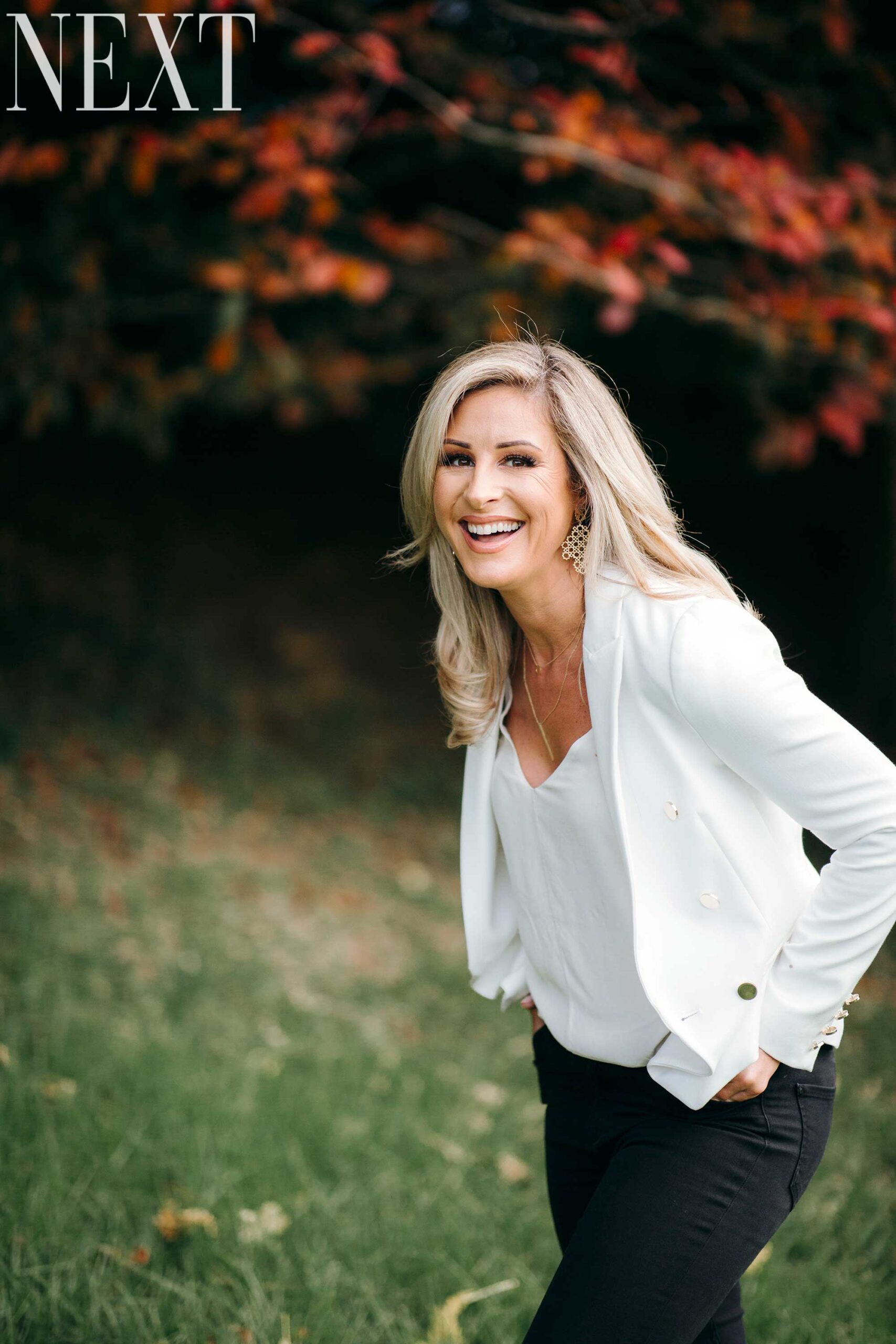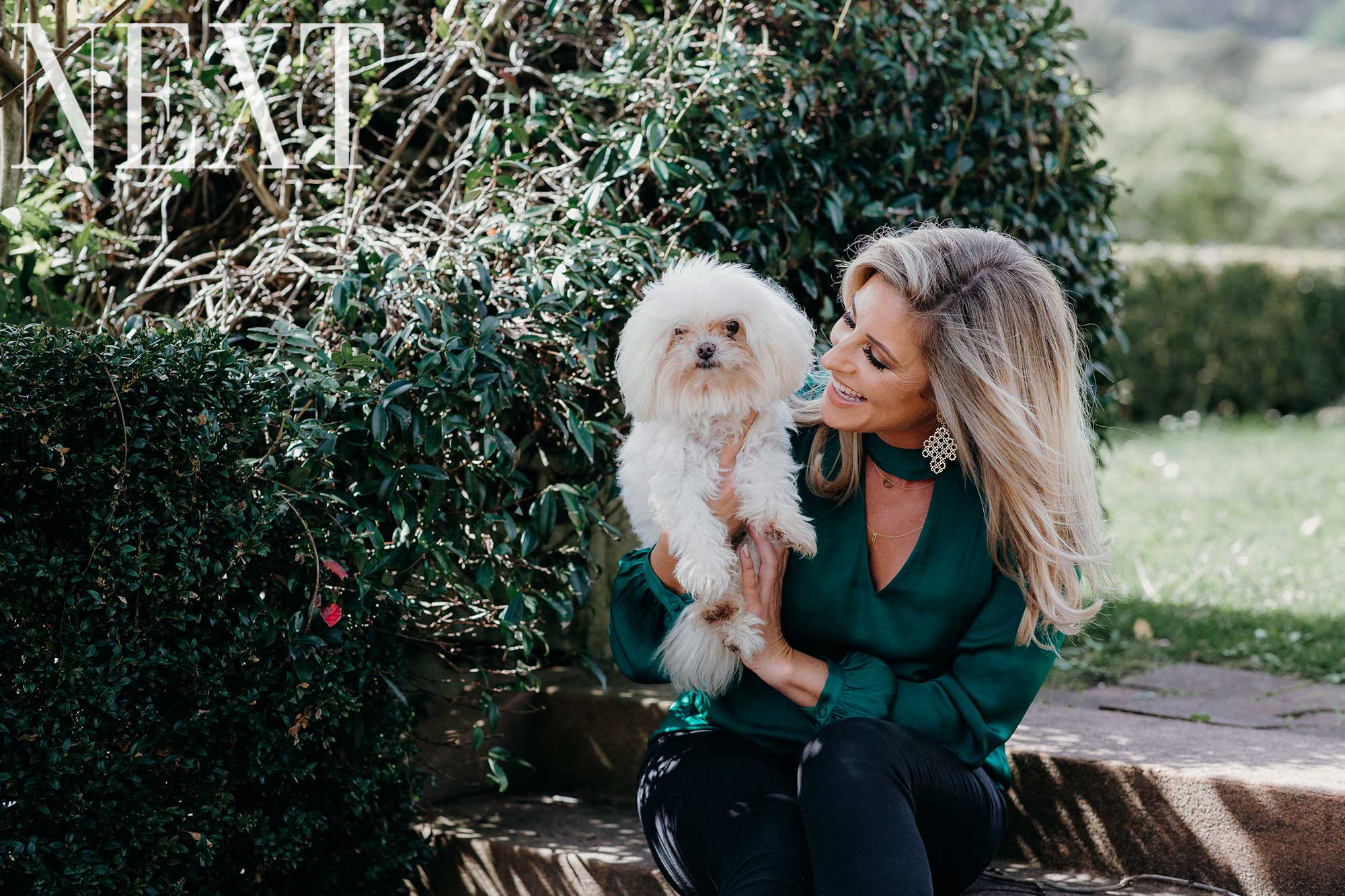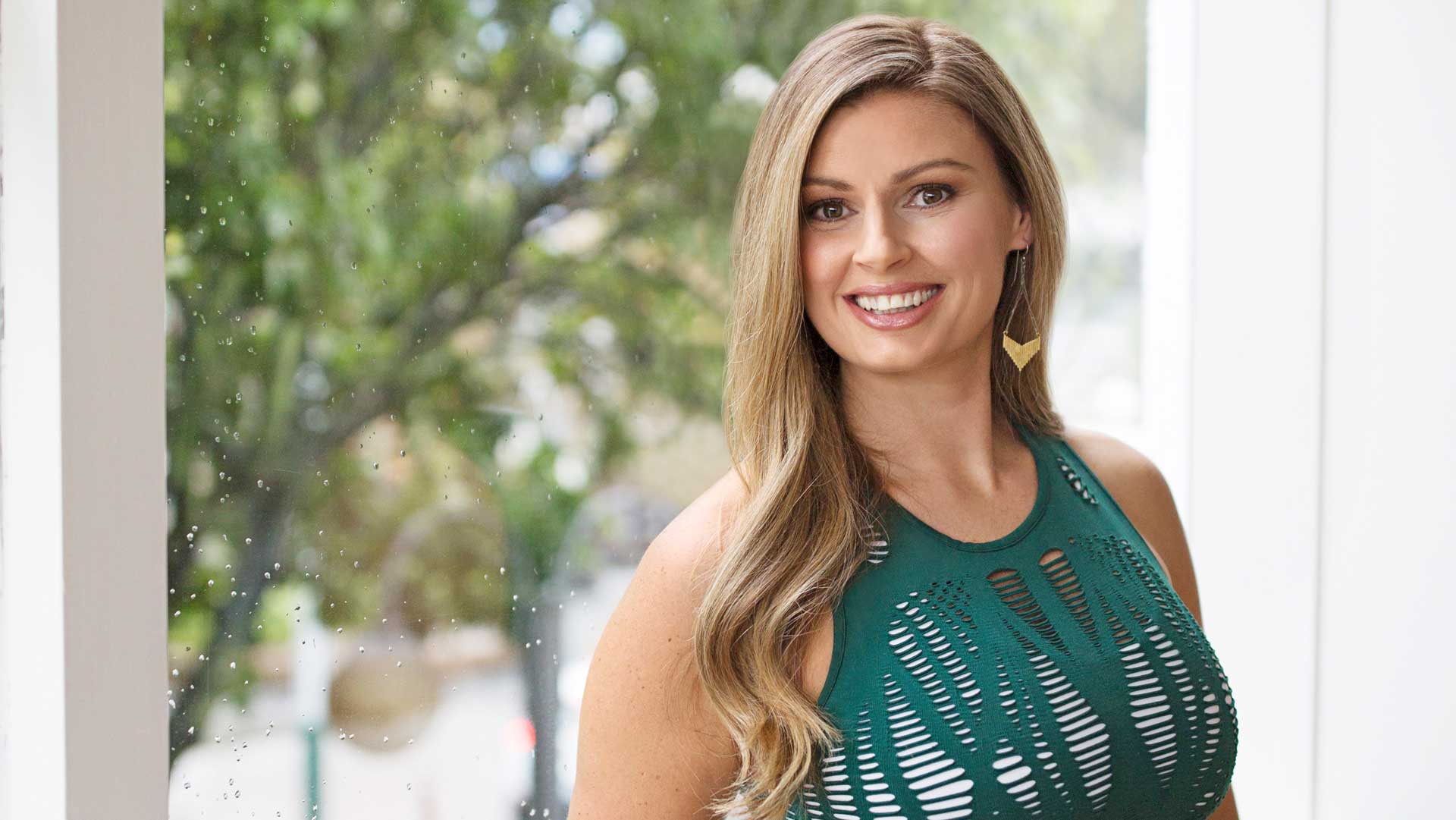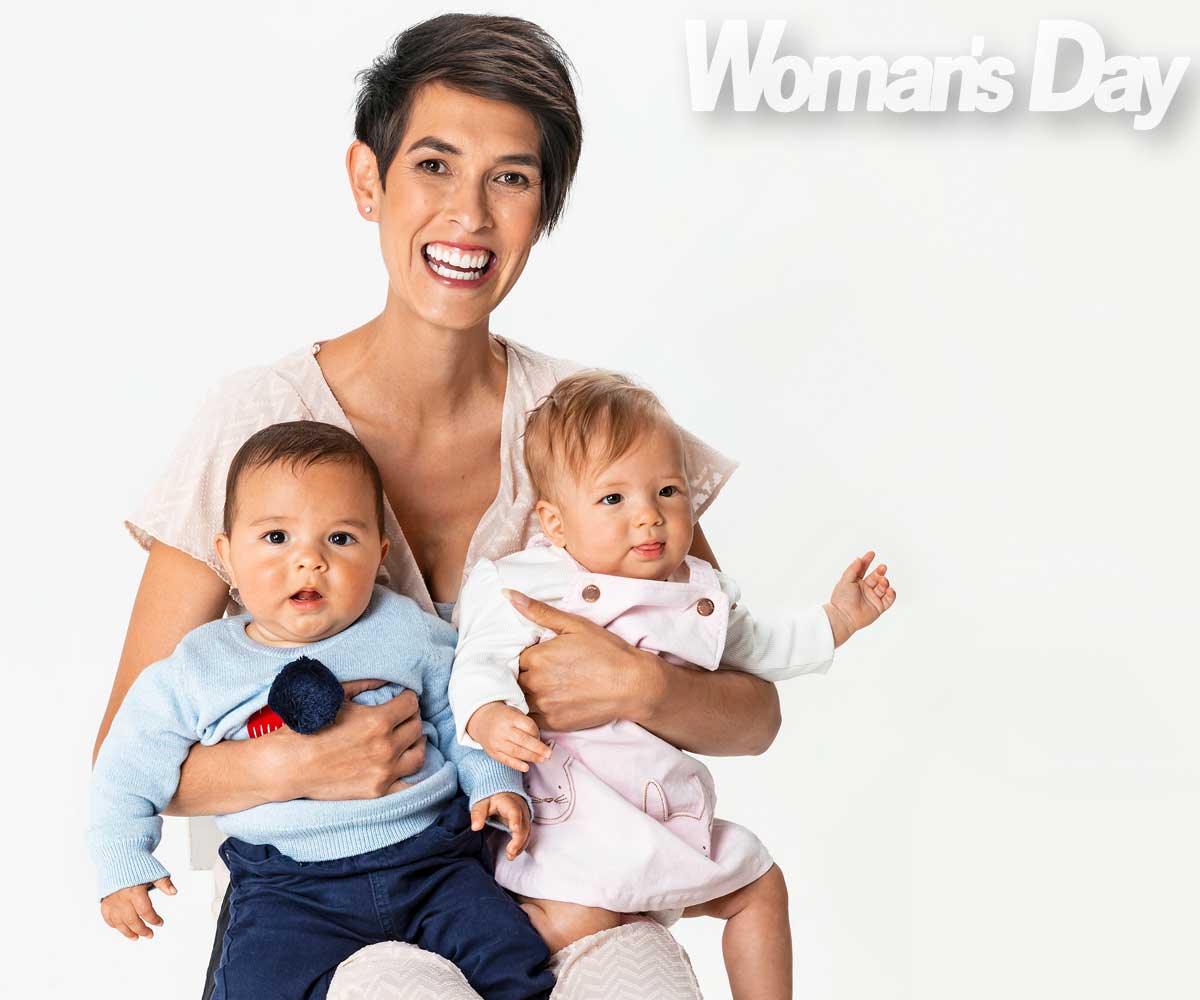I started having symptoms around September 2015. Initially my symptoms would swap between being constipated and having diarrhoea – it would be like that for a few days, and then I would be absolutely fine. Having three small kids, I thought maybe I just had a bug, or hadn’t been eating properly or regularly, or I was lacking sleep.
But it reached a point where I was running to the bathroom 10 times a day, and some blood would come out. That’s when it started to get a little more frightening and the doctors began to do more tests. But the problem with the flare-ups – and this is good for people to know – is I would be running to the toilet 10 times a day, but the very next day I was 100 per cent fine, so I wouldn’t think about it.
What eventually prompted me to go to the doctor was when I started exercising again and I went to have a massage on the bands of my legs. When I got home I had to run to the toilet and blood just came out everywhere. I was tested for all sorts of gut issues: coeliac disease, Crohn’s disease, food intolerances, as well as being given a course of antibiotics. I had a colonoscopy and gastroscopy in September 2016, which is when they discovered the tumour. It was a year of symptoms before my diagnosis.
Two weeks later, I was having surgery. The surgeon was very straight up with me about the process. He said he would be removing a third of my bowel – they take as much as they can to get as many lymph nodes as they can, so they can see how far it has travelled. He explained that I would be in hospital for five days, and it would take a week to know if I needed chemo because it takes that long to get the test results back.
I asked, “If I need chemo, how long will it be for?” He explained that it would be for six months. I asked, “Will I lose my hair?” He said, “No, you may lose up to half of it,” and I said, “Right, I can cope with this now.”

In the end they removed 14 lymph nodes; the three closest to the tumour – which was just under the size of a golf ball – had cancer. I then needed six months of fortnightly chemotherapy treatments.
If I didn’t do chemo there was roughly a 40 per cent chance I would get cancer somewhere else in my body within the next five years. With chemo, that goes down to 20 per cent.
I also didn’t have the bowel cancer gene, which knocked another couple of percent off, and my age worked in my favour. After chemo there would be an 18 per cent chance I would get cancer somewhere in my body within the next five years. But 80 per cent of that chance is in the first two years, and I’ve just passed that milestone.
Exercise plays a monumental part in not getting cancer again, which I didn’t realise until I started researching it. So, I got myself a trainer and I work out really hard three times a week. I know that I’m reducing my chances as much as I can, as well as feeling a hell of a lot better.
There were some complications. My bowel first twisted after my ninth round of chemo – I had 12 rounds in total – which they fixed in hospital.
A twisted bowel is possibly more excruciating than being in labour; it’s just a nightmare. It happened again in July 2017, when I was in Aitutaki, in the Cook Islands. My husband Chris had bought a trip for us as a ‘get me away’ after chemo and my bowel twisted while we were there, which was horrendous. We changed our flights to come home. Miracle upon miracle, we were sitting at the airport and my bowel flopped back again, which I could feel.
It’s so hard to explain – it just freed up all of a sudden. The surgeon said because it had happened twice, I needed to have surgery. They found that my bowel had prolapsed: you have your large bowel and your small bowel and one had fallen under the other, and it couldn’t work properly.
I had the surgery in August 2017 and they basically pulled my bowel out of my belly button and put it all back in the right position, and adhered it to the abdominal wall. Thankfully, I had an amazing surgeon and so far, touch wood, it’s all stayed in the right place.
Since then, I’ve been good, and my surgeon said if I could get through a year with no other issues I should be fine. Thankfully, I’ve reached that milestone. October 11, 2018 was my two-year anniversary. For me, this meant I could really and truly trust that my body had healed, and that I could focus on what I needed to take out of this process and how I could use that to help others.
I had no idea how strong I was, or how resilient, or the depth of my ability to see things from a higher perspective, and how and why these things happen. It’s not a glamorous thing to talk about – poo and your bum – but as a Gut Cancer Foundation ambassador, I can use my experience to help others.
A lot of people expected me to become vegan or change my diet somehow, but we’re pretty healthy, balanced eaters in our family anyway, so the best thing I’m doing for myself is exercise.
I never want to go back to feeling how I did before I started. In terms of other things, I’m letting myself have as much fun as possible.
I drink the wine, I buy the shoes, and I dance on the table. I consciously surround myself with really good people who I just adore spending time with.
I think in the process of being a mum – and I’m sure a lot of us do it – I had really turned away from myself; I hadn’t been prioritising myself or my health or my wellbeing. Our loved ones deserve for us to be well.

Bpwel cancer: the facts
• Gastrointestinal (GI) cancer is a broad term used to encompass cancers of the digestive system: the oesophagus, stomach, liver, gallbladder, bile ducts, pancreas, bowel, rectum and anus. It is collectively the most common form of cancer in New Zealand.
• Each year, gastrointestinal cancers kill more New Zealanders than prostate and breast cancers combined.
• Gastrointestinal cancer affects males and females equally.
• Bowel cancer is the most common GI cancer, and New Zealand has one of the highest bowel cancer death rates in the world.



